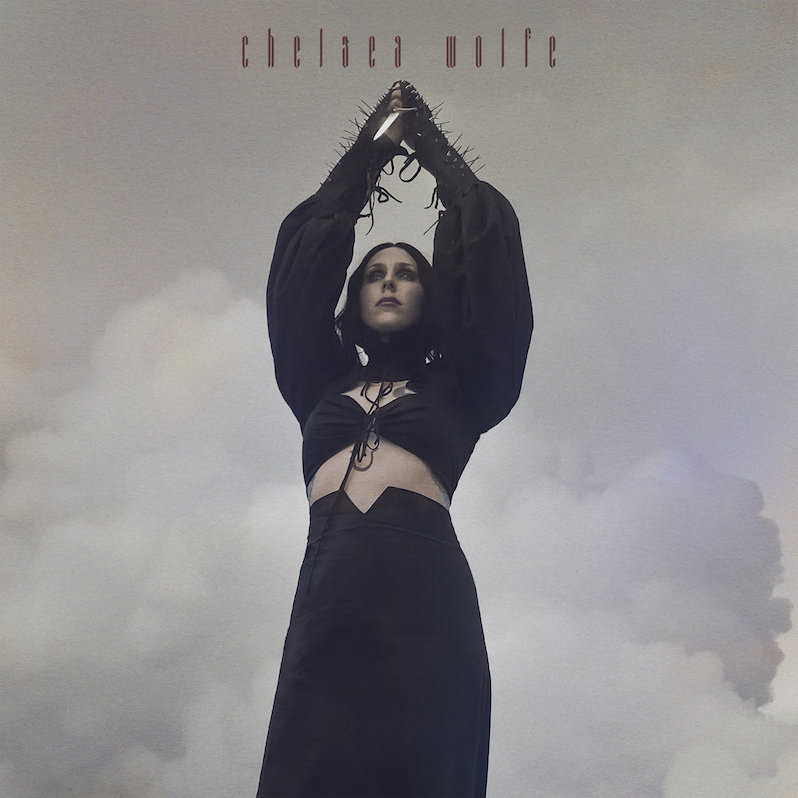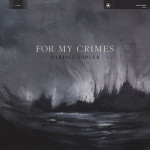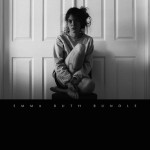Chelsea Wolfe : Birth of Violence

It’s not unheard of for Chelsea Wolfe to swap out her heavier sound in favor of an airy, acoustic ballad, but of late it’s not been the focus nor the the highlight of her music. Once a more stripped-down gothic folkster, having delivered more ghostly efforts such as The Grime and The Glow and Unknown Rooms, Wolfe has since only gotten bigger, louder and heavier, her 2017 album Hiss Spun an embrace of doom and stoner metal that, while still dark and eerie at its best, proved how much fun could be had within the style of mystical darkwave like Wolfe’s. There’s a time for crushing riffs, which we most certainly haven’t heard the last of, and a time for more spacious gothic folk dirges. And the latter is what comprises the entirety of Wolfe’s seventh album, Birth of Violence.
For Wolfe, Birth of Violence finds Wolfe giving herself the gift of some much-needed room to breathe while also delving into stories of women throughout the ages—some true, some fictional, some from her own bloodline—all within the overarching narrative of a world that’s severely hurting. That latter point is perhaps not so novel of late or even in the grand scheme of popular music; if anyone can make an album right now without being distracted by daily acts of inhumanity on their Twitter feed, I’m certainly not aware of it. These songs don’t peddle slogans, however. They’re narratives told through the voices of friends, ancestors and legends, speaking from a soulful and emotional place above all.
First single “The Mother Road” is a significant first step on the journey that Wolfe takes on Birth of Violence, at once the track that feels most like her recent work—rife with booming drums and startling screeches of horror-movie strings—as well as a macro look at the ideas that she explores in a micro scale in subsequent tracks. Wolfe returns to the refrain, “Guess I needed something to break me/Guess I needed something to shake me up,” but it’s in one brief line where she gets to the heart of the album’s meaning: “Women know what it is to endure.” She expands on that in “Dirt Universe,” singing “I am the daughter of sorrow,” subtly drawing reference to her own grandfather who, in her words, “messed up a lot of women in my family and I think some of that trauma has transferred to me.” Yet for as often as Wolfe reaches deep within a closely held kind of violence and trauma, she just as often gives space for more intimate moments of grief and affection. On the title track, she sings of “two white owls” outside of a waiting room, the imagery taken from a true story about friends of hers greeted by ominous and beautiful harbingers as they took their cat to be put to sleep.
It’s in the moments like that of “Birth of Violence” or the ghost story within “American Darkness” that the album reveals a more emotionally affecting side, some of these songs featuring some of the most beautiful sentiments that she’s put to record. Still, I’d be lying if I said I didn’t miss some of the bombast and climax of her previous two albums. Wolfe rocks harder than most, and she’s really good at it. But even the Gods of Thunder need a moment to catch their breath. Even if Birth of Violence strays from Wolfe’s most bombastic and thrilling material, it offers rewards for those who listen more closely, who engage with its intimately affecting material. Birth of Violence is some of Chelsea Wolfe’s gentlest material, but dig deeper, listen a little closer, and you’ll find some of her heaviest.
Similar Albums:
 Chelsea Wolfe – Apokalypsis
Chelsea Wolfe – Apokalypsis
 Marissa Nadler – For My Crimes
Marissa Nadler – For My Crimes
 Emma Ruth Rundle – Marked for Death
Emma Ruth Rundle – Marked for Death
Jeff Terich is the founder and editor of Treble. He's been writing about music for 20 years and has been published at American Songwriter, Bandcamp Daily, Reverb, Spin, Stereogum, uDiscoverMusic, VinylMePlease and some others that he's forgetting right now. He's still not tired of it.

